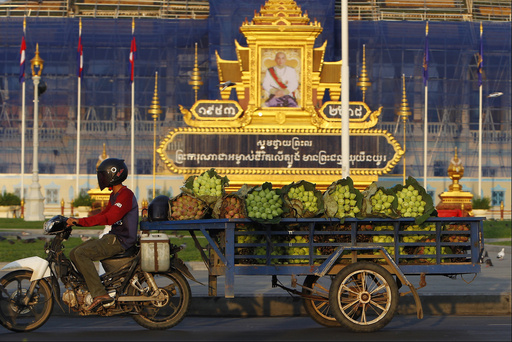
PHNOM PENH, Cambodia — A group of thirteen women from the Philippines has been found guilty of charges related to human trafficking for their roles as surrogates in Cambodia, where they were part of a scheme selling babies to foreigners for monetary exchange.
The Kandal Provincial Court revealed on Monday that each of the women has received a four-year prison sentence after being convicted of offenses involving the selling, buying, or exchanging of individuals for cross-border transfer. In a turn of events, the court also announced that two years of their sentences would be suspended, meaning that they will only serve the remaining time if they are convicted of further crimes in the future.
Currently, the women are being detained at a police hospital located outside Phnom Penh, Cambodia’s capital. Officials had previously indicated that they would not begin their prison sentences until after they give birth. The possibility of an appeal has been afforded to the women, as confirmed by court spokesperson So Sarin, who opted not to disclose how many of them are still expecting or what the fate of the newborns would be once delivered.
The appeal of developing nations like Cambodia for surrogacy services largely stems from the significantly reduced costs compared to those in countries like the United States and Australia, where the average cost of surrogate services can reach approximately $150,000.
This case stands out due to the fact that surrogates are typically employed within their home countries rather than being transported abroad. Reports suggest that the operation hiring the women was based in Thailand, which also provided their living accommodations while in Cambodia.
The group of women was taken into custody in late September during a police raid on a villa located in Kandal province, where authorities discovered a total of 20 Filipinos and four Vietnamese individuals. In the wake of their charges in October, the Cambodian Interior Ministry expressed that the identities of the ringleaders remained unknown but stated that the women should be viewed as perpetrators who colluded with the organizers to act as surrogates for profit rather than as victims in this case.
Among the group, eleven women who were not pregnant faced deportation, while the thirteen Filipinos were charged under a specific law addressing the Suppression of Human Trafficking and Sexual Exploitation. This law was revised in 2016, leading to a ban on commercial surrogacy following a surge in foreigners traveling to Cambodia for surrogacy services.
Cambodia has long struggled with a concerning reputation related to human trafficking, which recently has included illegal online recruitment scams that trick foreigners into jobs under false pretenses, resulting in conditions akin to slavery where victims are forced to assist in fraudulent activities against various international targets.
The commercial surrogacy industry in Cambodia saw a surge after stricter regulations were imposed in neighboring countries like Thailand, India, and Nepal. Notably, in July 2017, a Cambodian court handed down a prison sentence of one and a half years to an Australian woman and her two Cambodian associates for their involvement in providing commercial surrogacy services.
